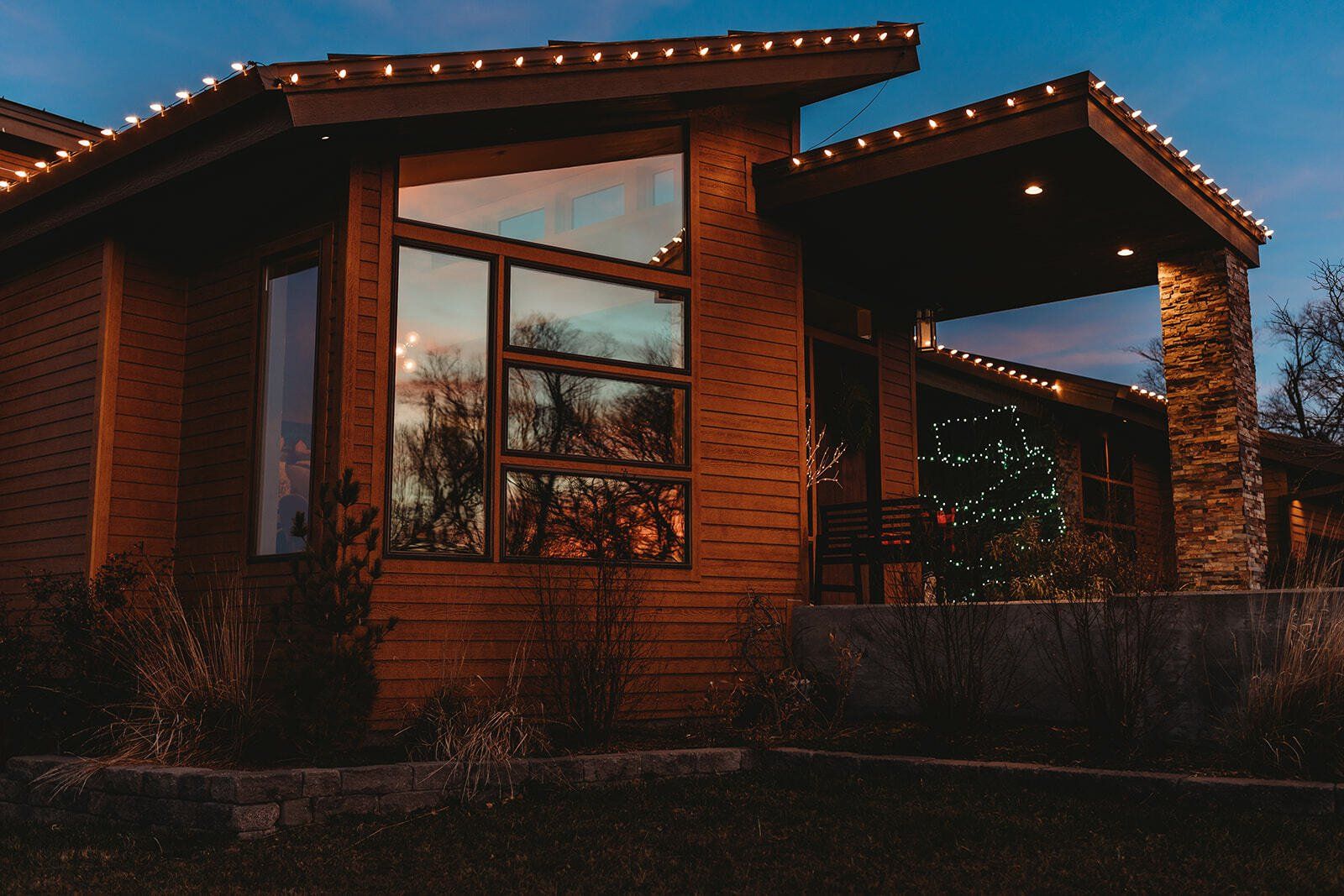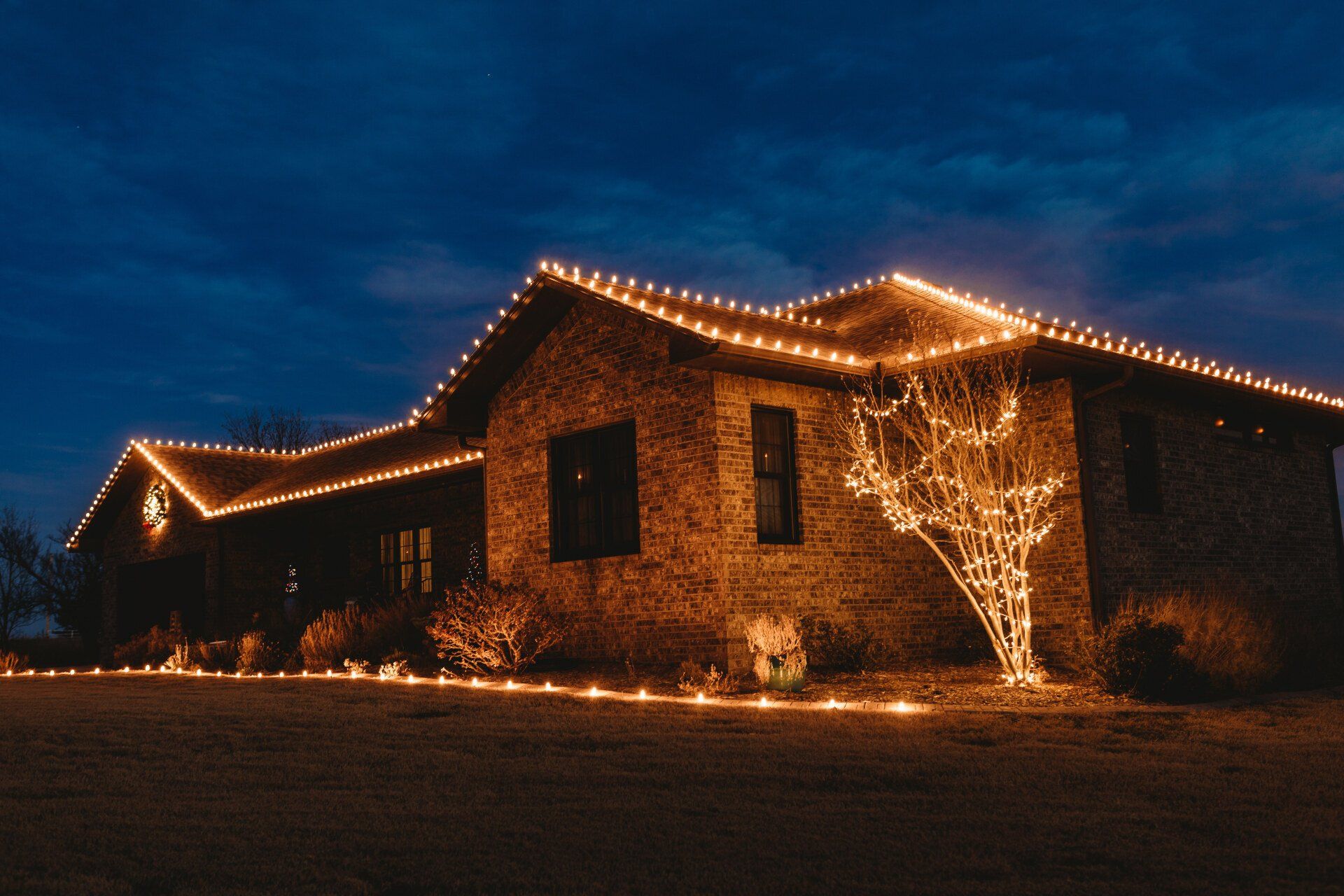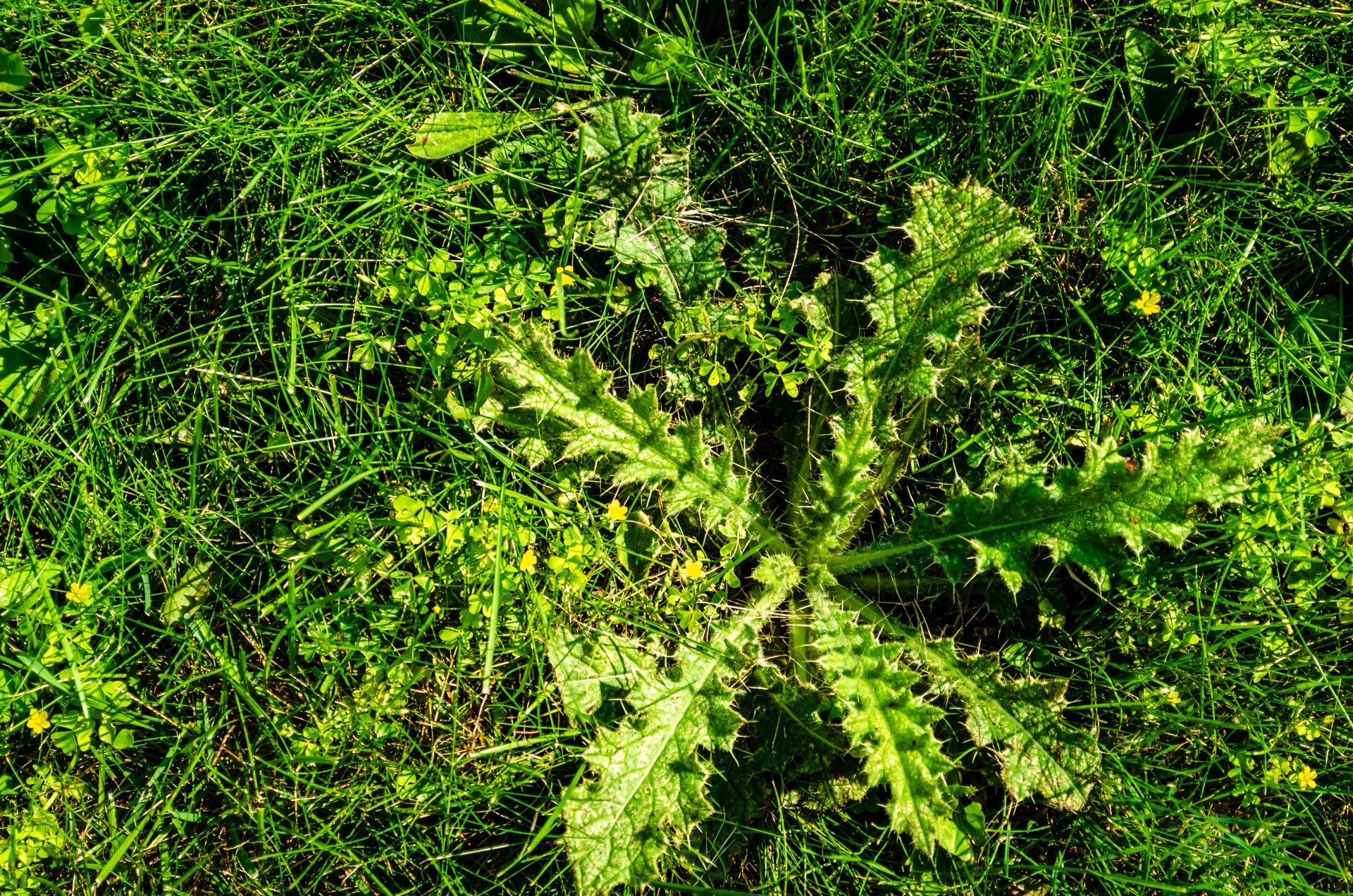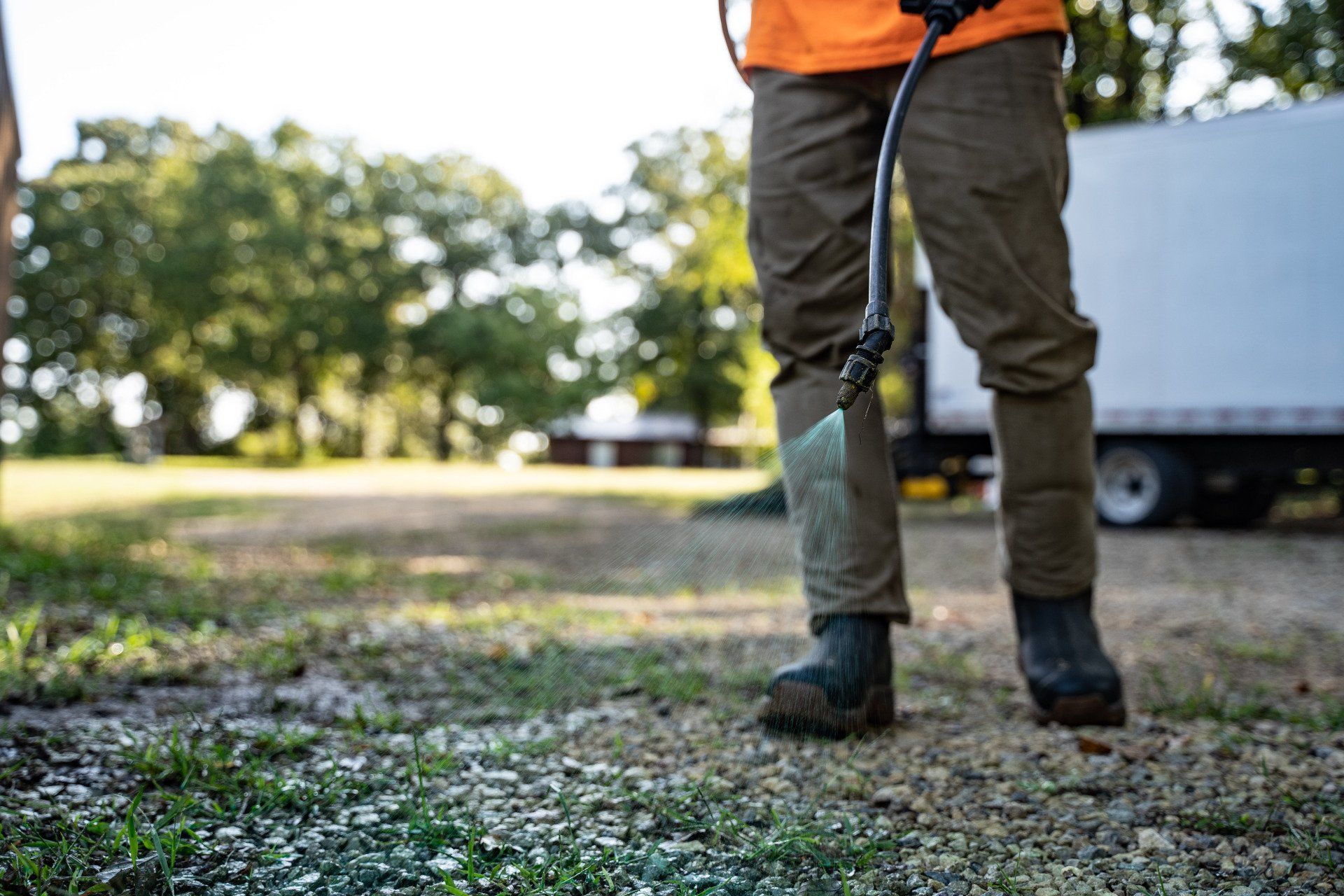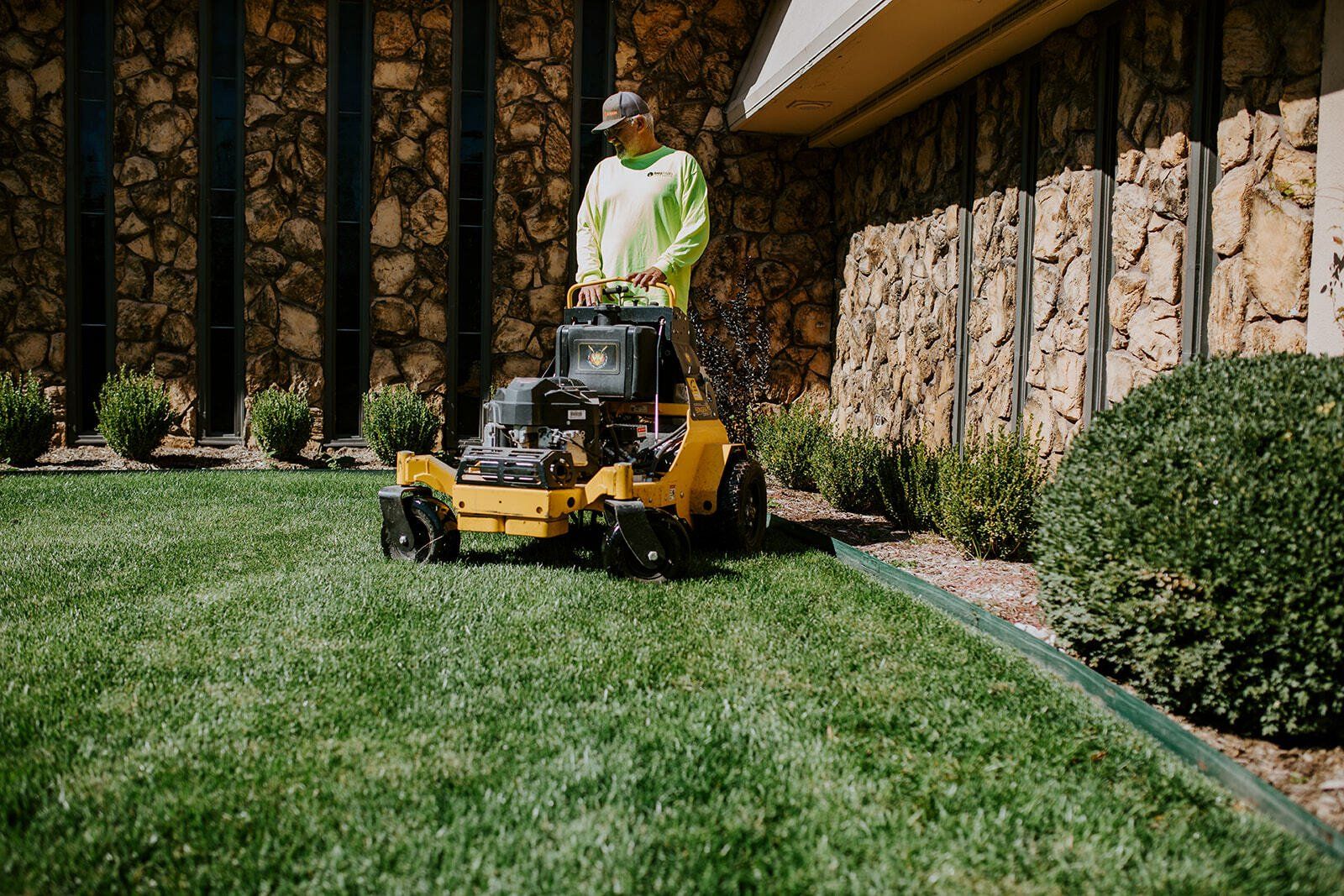
Receive a Full Year of Complete Lawn for only $497.00
How to Identify What Type of Grass You Have
For all of our DIYers out there, to take care of your lawn properly, you need to know what time of grass you have. The question you should always start with is “what type of grass do I have,” whether you are wanting to fertilize, aerate, or mow, you need to know what your lawn is holding.
Let’s take a look at the types of grass that are commonly found in the midwest.
Types of grass in the Midwest
The most common grasses found in Midwestern lawns are cool-season grasses including Fine Fescue, Kentucky Bluegrass, and Perennial Ryegrass. Bermuda and Zoysia can be found in Kansas lawns and with proper care, can do quite well.
Fine Fescue
There are several different breeds including Sheep Fescue, Chewing Fescue, and Creeping Red Fescue. These species do well in areas with moderate summers but can withstand colder winters, making it a perfect grass for the Midwest.
This species is a great option for yards that experience a lot of time in the shade but it needs some sun exposure to keep it growing and healthy. Fine Fescue can be mixed with Kentucky Bluegrass for yards that receive less sunlight.
Advantages
- Shade tolerant
- Grows in infertile soil
- Drought tolerant
Disadvantages
- Intolerant of high temperatures
- Suffers when over-watered
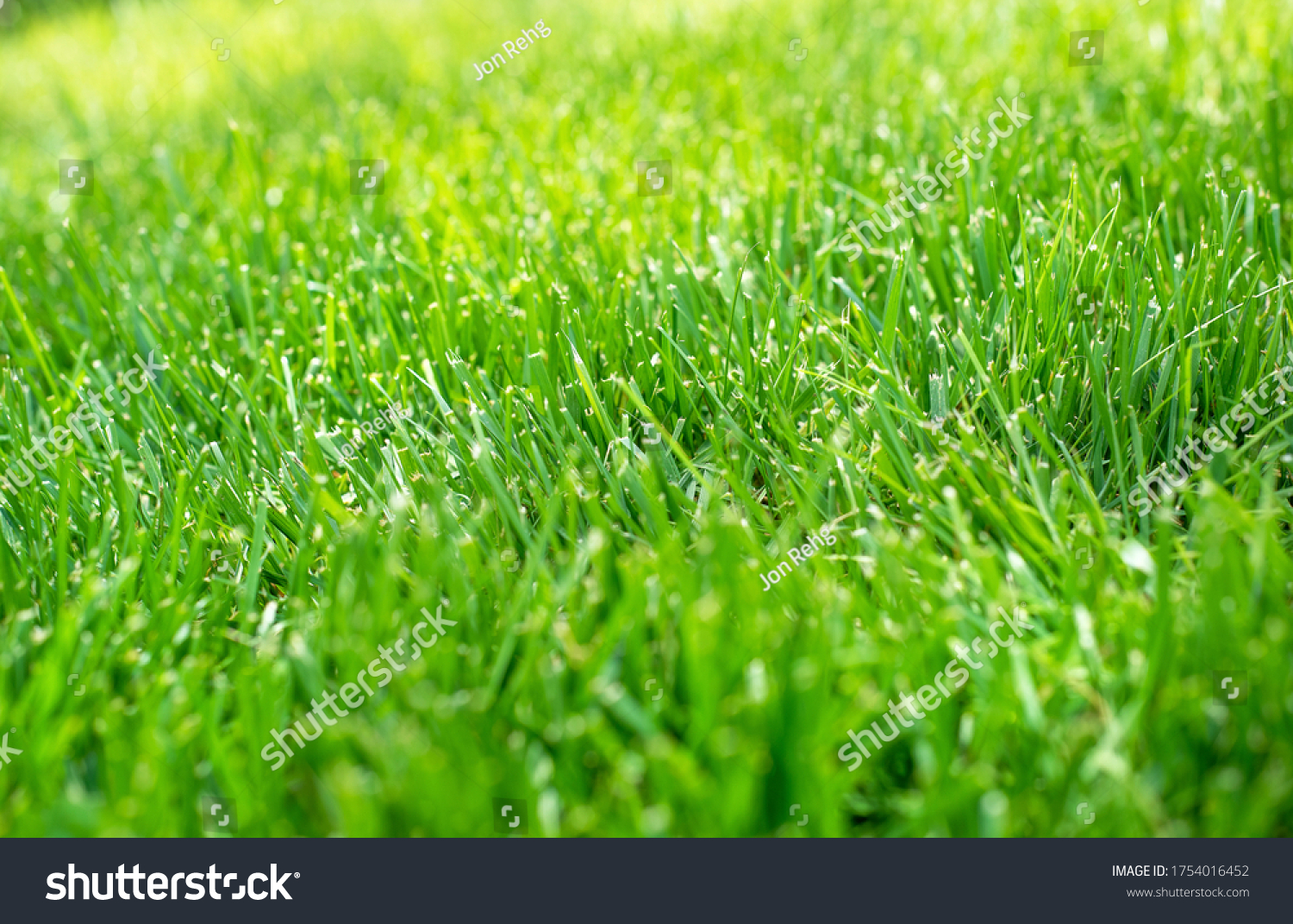
Kentucky Bluegrass
A popular choice for cool-season grasses in the United States, a Kentucky Bluegrass lawn creates a beautiful turf that makes your lawn stand out. Its soft and dense dark green leaves give you a luscious and vibrant look to your yard.
This grass type has a fair warm temperature tolerance and it has an excellent cold temperature tolerance making it great for Midwestern summers and winters alike. However, this grass needs water and has a very poor drought resistance, and will not do well in shaded areas. Kentucky Bluegrass can often be found blended with Fescue or other grass types due to the shade and drought intolerance conditions.
Advantages
- Tolerates low temperature well
- Beautiful appearance
Disadvantages
- Poor shade tolerance
- Takes a long time to establish
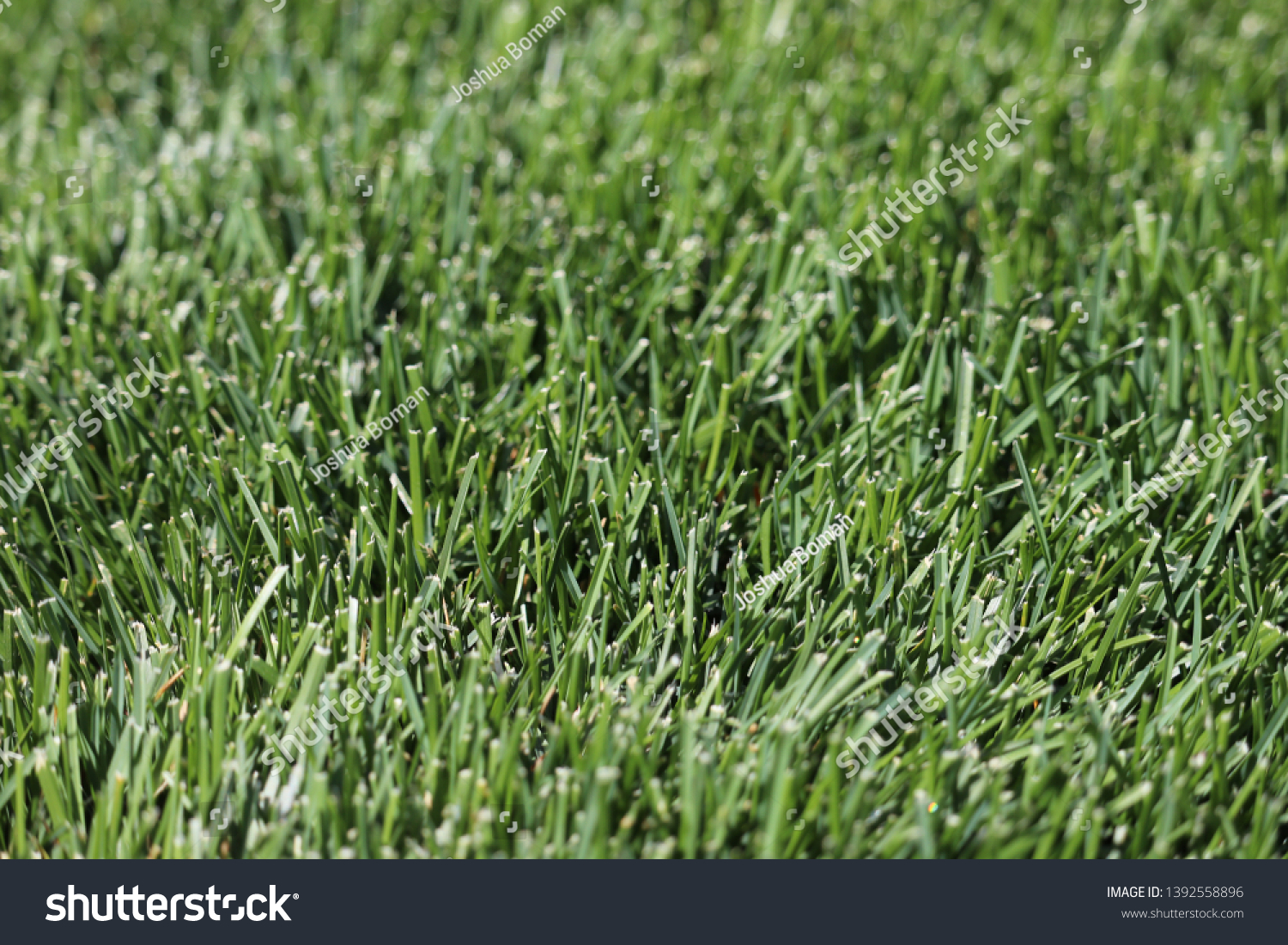
Perennial Ryegrass
A common acquaintance to other grass types, ryegrass is known for being used as a filler in addition to other grass types for overseeding. For homeowners with patches on their lawn, this easy to work with seed is a great option for quick establishment.
Shiny and dark green leaves sprout from Ryegrass seed and have a fine texture. While Ryegrass is a cool-season grass, there is a lower chance of Ryegrass fairing in northern temperatures compared to the other cool-season grasses but can do well in places with mild winters. Ryegrass is a bunch-grass and will not spread outward making it a great patching option.
Advantages
- Quick establishment of cover
- Good for overseeding
- High wear tolerance
Disadvantages
- Least cold tolerant of the cool-season grasses
- Not best for standalone turf, better as part of a mix
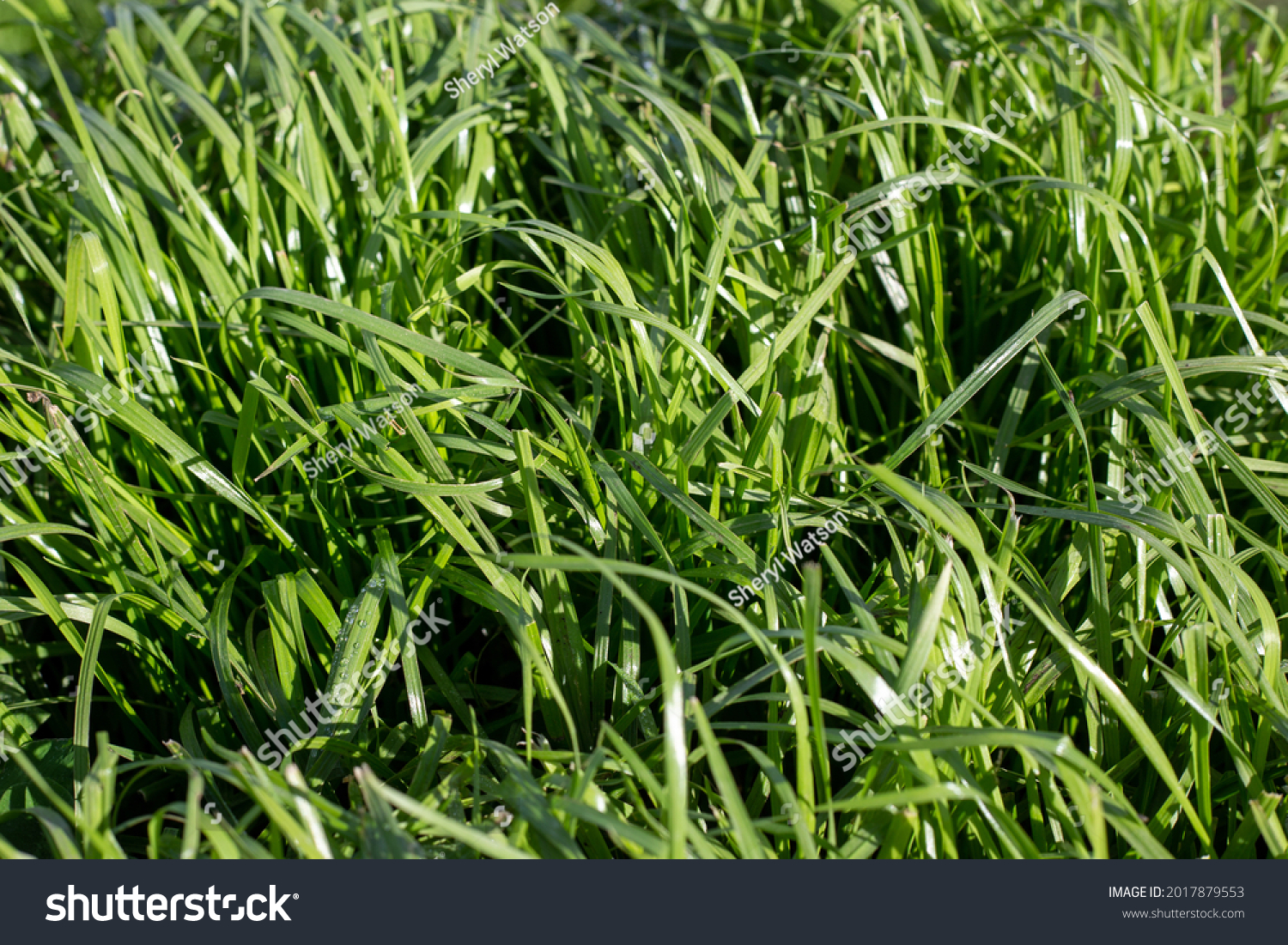
Bermuda
The king of wear and tear, Bermuda grass makes a great candidate for high-traffic yards; however, the high maintenance requirements usually make it undesirable for many homeowners. The quick establishment and spread of Bermuda grass leads to thick turf that handles kids and pets extremely well.
Bermuda grass is known for its aesthetically pleasing fine, dark green blades. Usually found in southern states, Bermuda turf-grass can thrive in transition zones too. Besides being highly wear and tear tolerant, this grass handles droughts better than most other grasses. Its need for nutrients, water, and maintenance is unmatched as well. Due to this, Bermuda is best suited for homeowners who are okay with spending their free time caring for their yard.
Advantages
- Grows aggressively
- Tolerates heat exceptionally well
- Withstands wear and tear
- High drought resistance
Disadvantages
- High maintenance
- Cold weather intolerant
- Shade intolerant
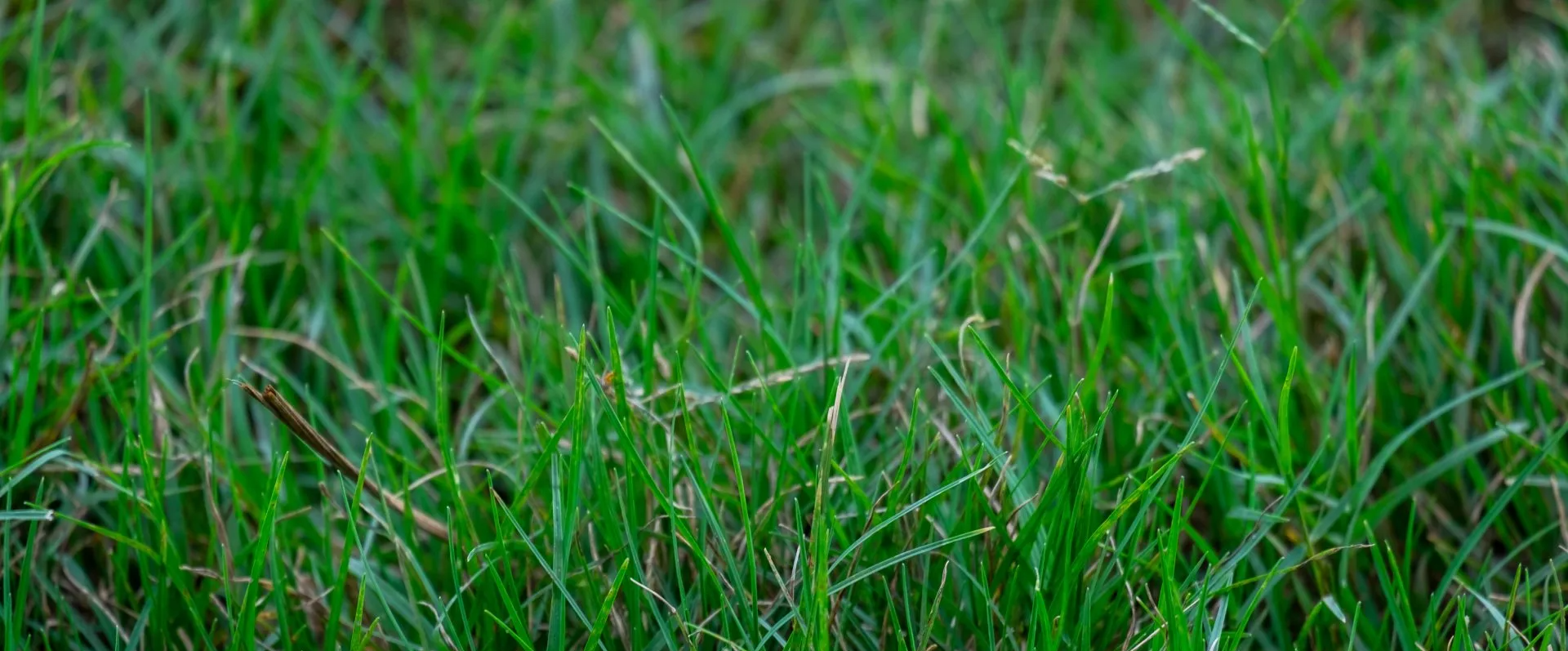
Zoysia
This hardy grass is known for growing well in varying conditions. Typically found in the deep south, this grass can also do well in transition zones. Unlike fescue, Zoysia grows outward and creates thick and dense lawns that are both satisfying in look and feel. Compared to Bermuda, Zoysia’s low maintenance characteristics make it a prime choice for homeowners.
Zoysia develops deep roots that allow it to handle drought better than Bermuda; however, the deep rooting process makes it slow to establish and grow. For warm-season grass, it handles shade well and does not require much maintenance. While this grass does well in transitional zones, the leaves will lose color once cold weather begins.
Advantages
- Great wear and tear tolerance
- High heat tolerance
- Less watering needed
- Tolerates shade well
Disadvantages
- Long recovery time
- Difficult to establish
- Does not tolerate cold conditions well
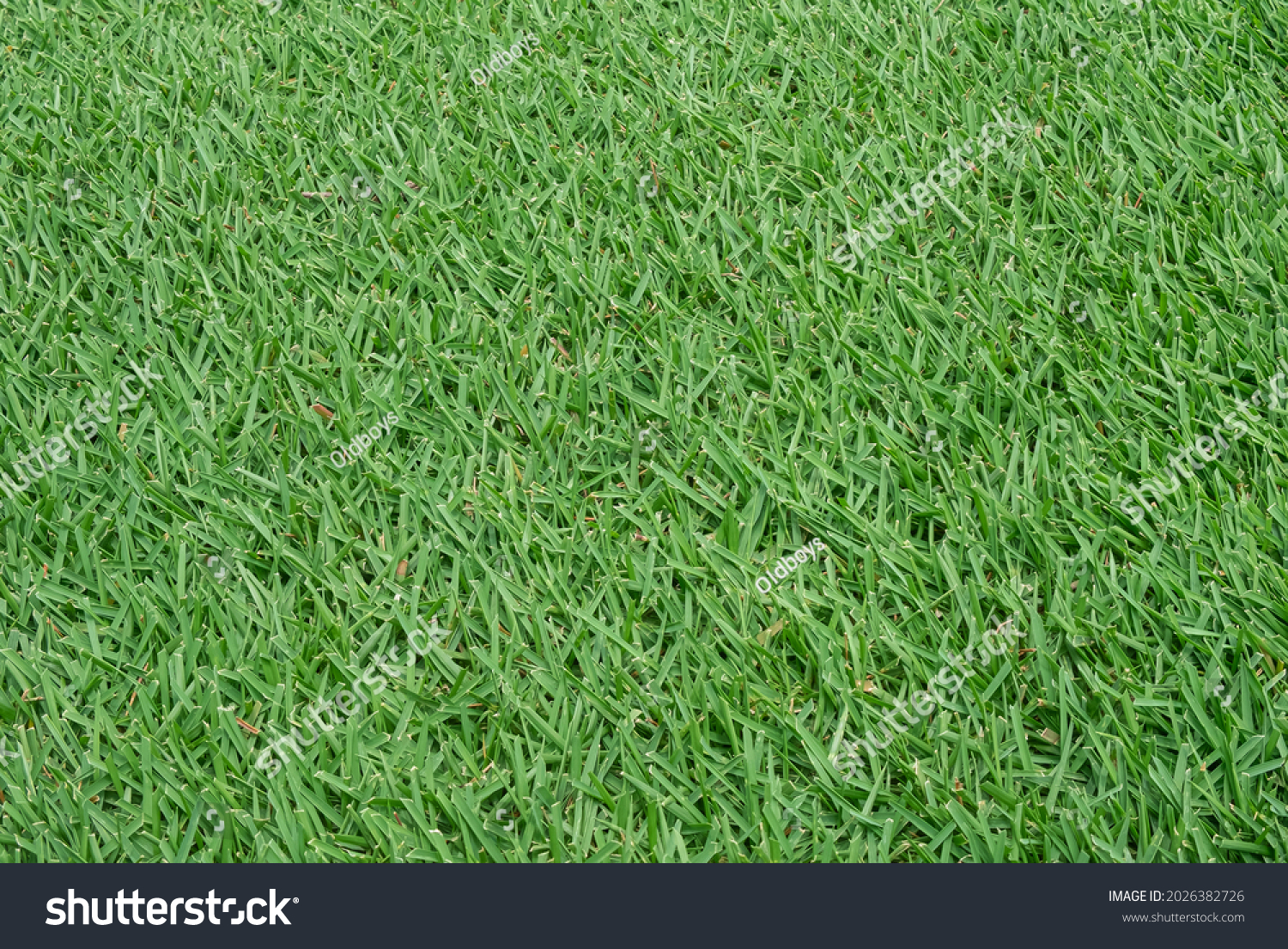
Conclusion
Now that you know the basic characteristics of popular Midwestern grass types, you should be able to identify what grass is found in your yard.
This guide can also help when deciding on grass seed or preparing a maintenance plan for your lawn this summer. If you want expert identification,
you can contact us today!
If you aren’t looking to dedicate all of your free time to lawn care, you can
check out our Lawn Care Maintenance plans that provide year-round expert care for your lawn. Starting at just $39/application, you can have a beautiful, stress-free yard in no time.
